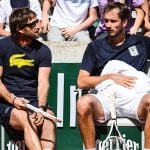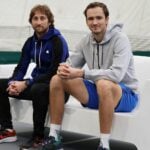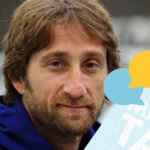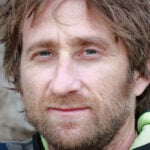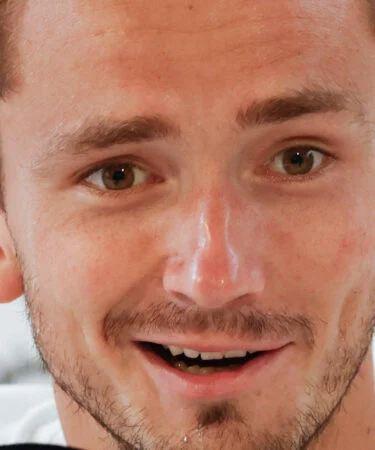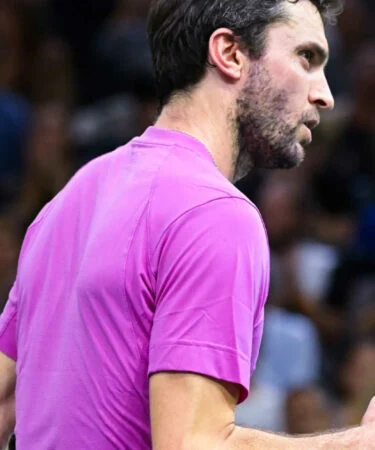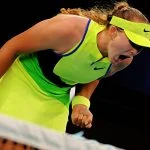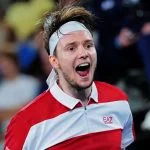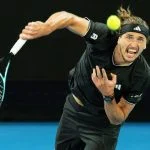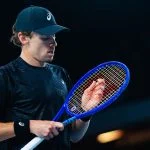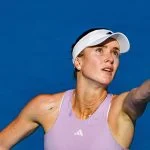Cervara: “Continuing with Daniil would have been a risk, for him as well as for me.”
Gilles Cervara, coach of Daniil Medvedev from 2017 to 2025, shares with Tennis Majors the behind-the-scenes details of the decision to stop this journey.
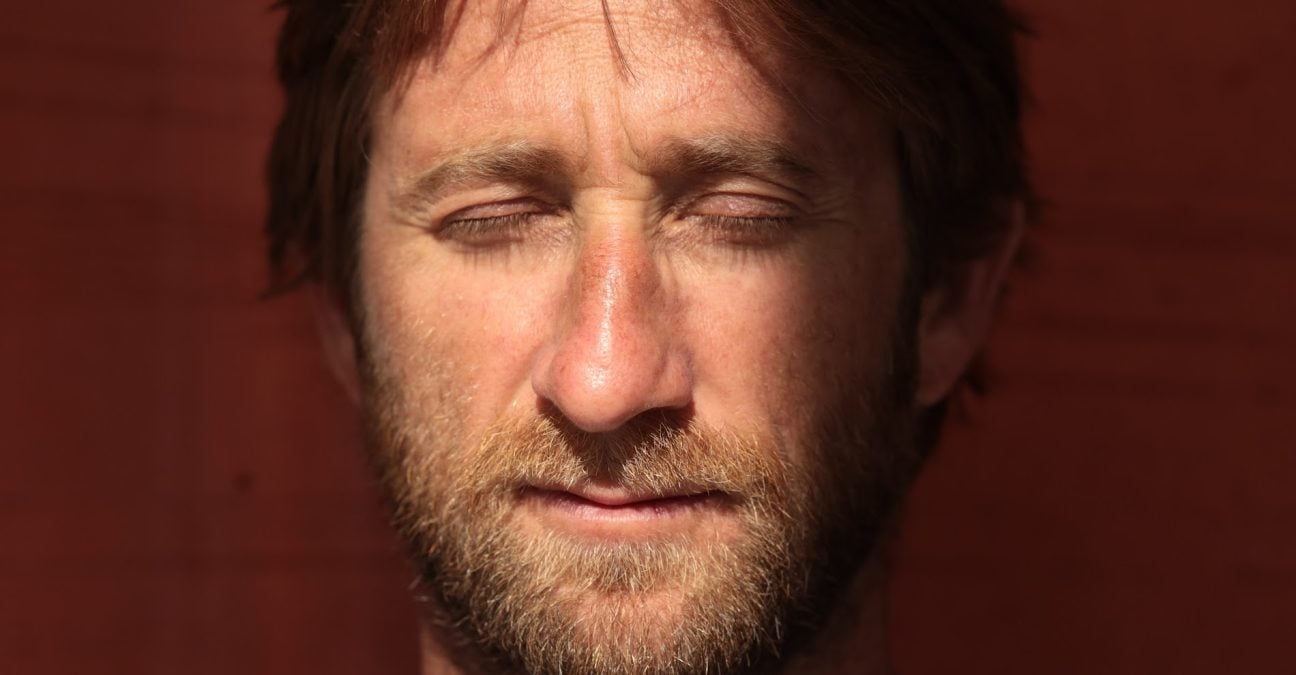 Gilles Cervara, portrait – © Cédric Rouquette / Tennis Majors
Gilles Cervara, portrait – © Cédric Rouquette / Tennis Majors
Tennis Majors: We heard on Sunday that you're no longer Daniil Medvedev’s coach. That's something that can happen when results no longer meet expectations. Could you clarify who took that decision, when, and how?
Gilles Cervara: Yes, results are the gauge of professional success—and even the measure of the player‑coach relationship in tennis. They hadn’t been satisfactory for some time (Medvedev began the season ranked 5th in the world; he’s now 13th, and 22nd in the Race). The question is why, and I’ve been thinking about it for a long time. After his first‑round loss at Wimbledon this year, I became certain that if results didn’t rebound during the summer, something needed to change. That “something” was the energy around Daniil. So we needed to change the people involved. The “people” concretely meant either me, or the fitness trainer Éric Hernandez, or both (Éric Hernandez also announced that the Medvedev project was ending for him). I kept thinking about it. I talked to Daniil after the US Open. He himself raised the idea: “After eight years, maybe it’s time for something different.” I said to him: “Listen, that’s exactly what needs to happen in my opinion, because I don’t think I can continue to make you perform in the energy state we’re in right now. You need something new, something different, to transform.”
Tennis Majors: So would you say that you both had the same idea, at the same time, and you shared that during your usual debrief after the US Open?
Gilles Cervara: I think I thought of it before him. I talked about it with his agent in Cincinnati. I was ready. In a frank assessment of the situation, I didn’t want to put Daniil in a corner—or myself. If I had asked him, “Do you think you can carry on like this?” and he’d said “yes,” that would have been a risk—a huge risk. We would only have had three months to validate that choice. You can keep working well while waiting for better results, of course. But starting a new season like that puts a sword of Damocles over your head—you have zero room for error, or…
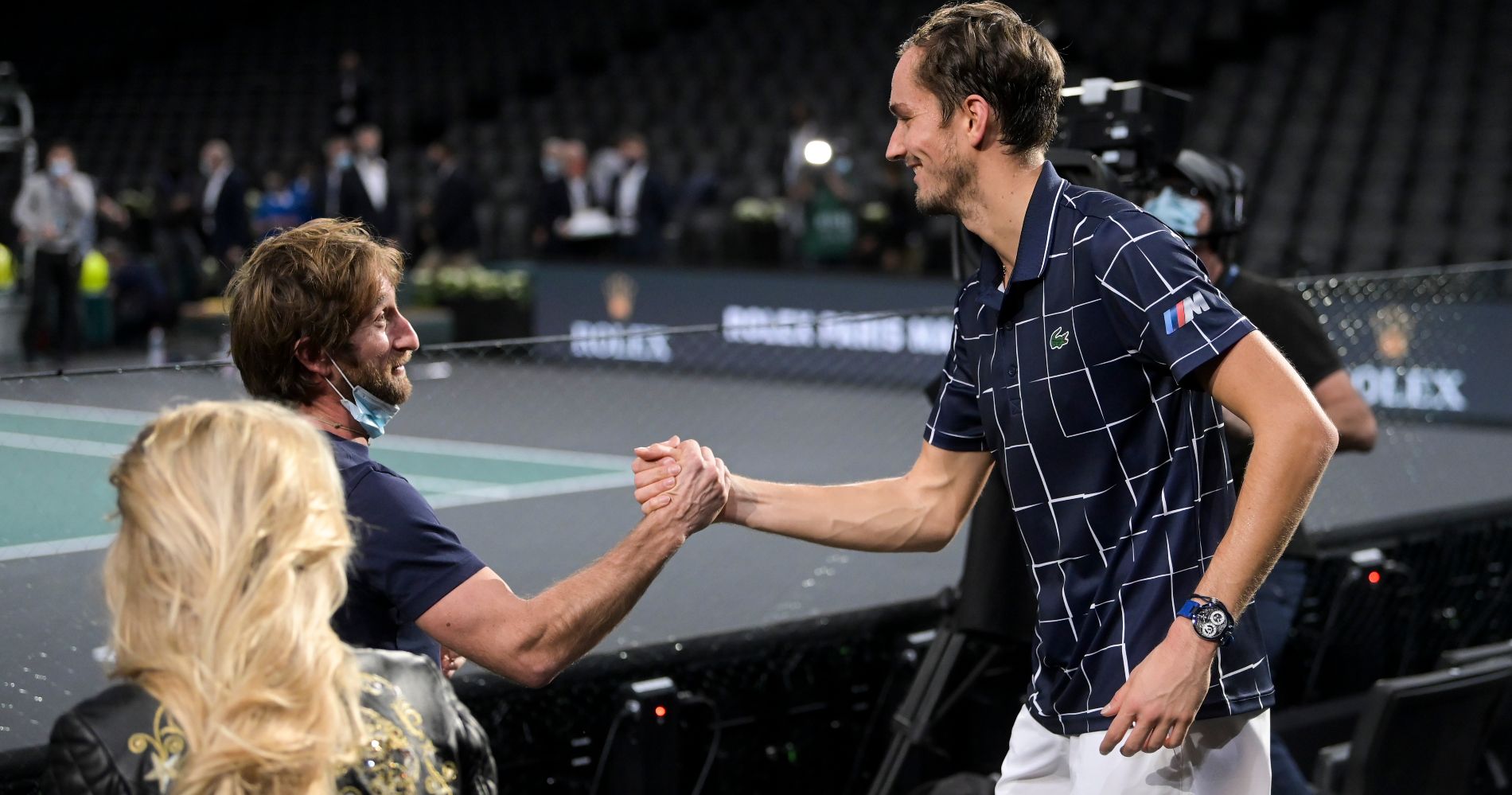
Tennis Majors: Isn’t that sword of Damocles the fate of every coach? Even when results weren’t good this season, were you both just waiting to go through the US Open, no matter what?
Gilles Cervara: No, we don’t think that way. You could absolutely have replaced me earlier. But looking at the season, that would have felt rushed. After Wimbledon? We had just reached the Halle final, which reignited something, and the return of mental preparation with Francisca Dauzet gave new impetus, and a hope for a different summer. Before Wimbledon, there was the clay‑court season—never his best—and before that, the recovery after his decision to stop working with Gilles Simon.
Tennis Majors: What happened in recent months that you had never experienced with Daniil—and that prevented regaining the performance cycle that defined you up to 2024?
Gilles Cervara: I think I recognized things in our dynamic—and I shared them with Daniil. In hindsight, those things caused exactly the outcome I feared. It’s unfortunate it ended like this, but at the same time, it’s natural. It allows me to keep learning—for my experience as a coach, to be able to do better in the future, and to respond differently when I sense something is off.
I think I’m incapable of routine, and I’ve likely never been.
Tennis Majors: When did you first realize the results weren’t good enough? Was it at Wimbledon this year, Roland Garros, earlier? His atypical Grand Slam results started in Australia, with a second-round loss to Tien.
Gilles Cervara: It’s more complicated. Results are only the visible part of a larger reality—his personal life, family, daily work, goals, team. In the visible realm, things started declining after Melbourne. But looking back, maybe it was already too late. Every attempt to revive things failed because the deeper causes had taken root. The energy and structure weakened.
Working with Gilles Simon (February 2024–January 2025) caused what I called “static,” disruptions, and afterward we tried to restore things—but recovery was difficult. I’d even say it didn’t succeed. At that time, post‑Australia after Simon’s departure, we tried to rebuild and start from scratch.
In tennis terms, it was all very sluggish. I’m not saying he’s playing great now, but he has resources. I believe with what he will put in place, his level can come back quickly. After Australia, we went into reconstruction. That phase dragged into the whole season—we never got back on the winning track.
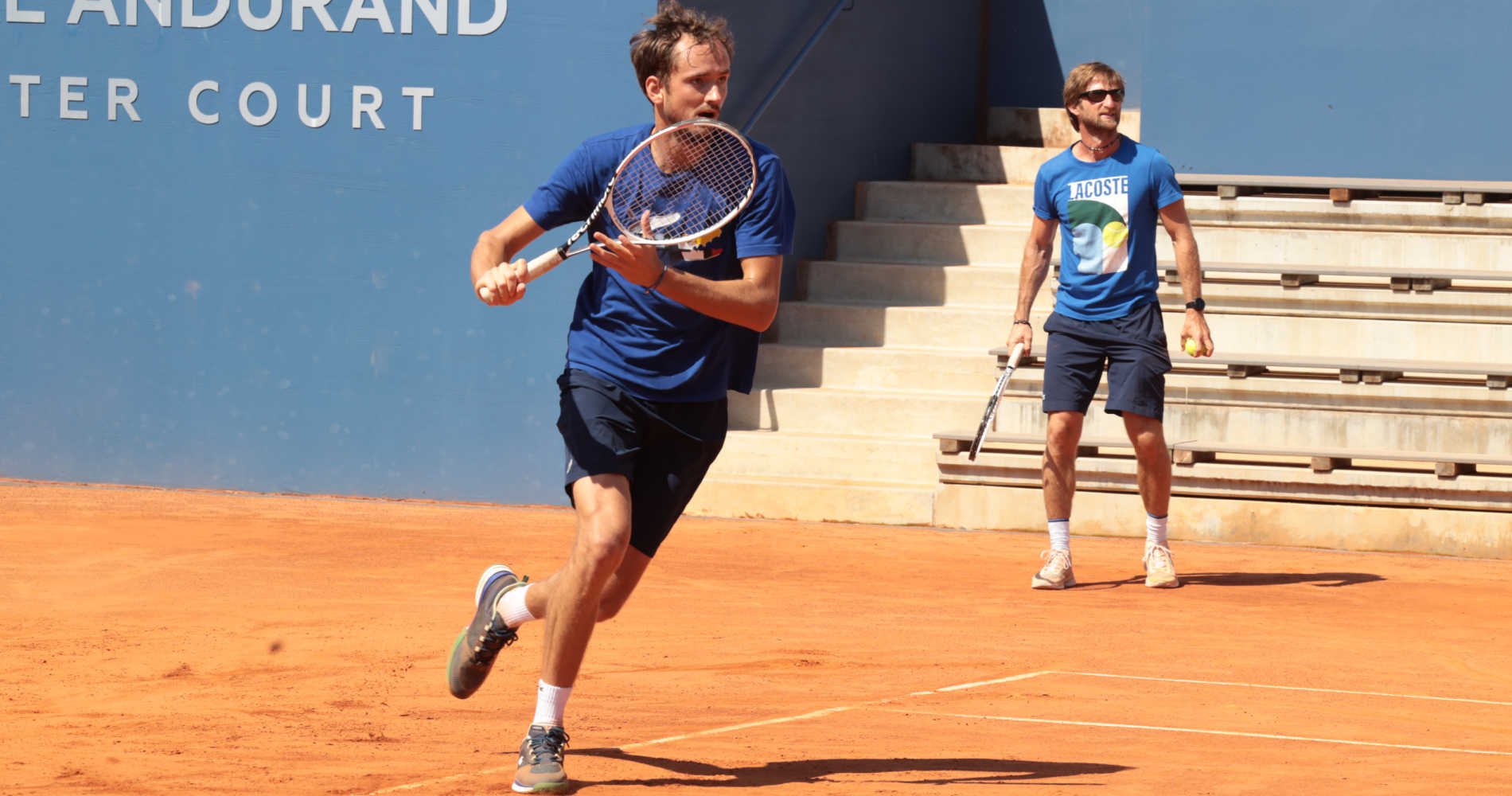
Tennis Majors: “Static”? Did Daniil hear mixed messages about his game while Gilles Simon was part of the staff?
Gilles Cervara: No. We were aligned—he heard the same message, just expressed differently. It’s a type of energy that got transformed and created imbalances in the team. Not everyone senses it. You push in one direction, but it’s not the right one. You have to retrace your steps, find a new direction. That’s how we arrived here.
Tennis Majors: When you talk about changing energy, it reminds me of routine. Should you have changed everything, and couldn’t manage it?
Gilles Cervara: I think I’m incapable of routine, and I’ve likely never been. A team around a player is like an engine—a complex machine that drives forward. When it runs at full power, you go fast. At some point the engine stops, but you don’t see it because the boat continues gliding. After a while, that energy is gone, and you’re stuck mid-sea, trying to restart that engine.
I firmly believe he still has it in him, that he can soon be brilliant and victorious.
Tennis Majors: Daniil’s biggest losses this year were tight battles that slipped away: Tien in Melbourne, Norrie at Roland, Bonzi at Wimbledon and the US Open. These kinds of matches usually go to the best. Does this show he's far from his level—or close, with just a psychological block?
Gilles Cervara: Hard to say. I firmly believe he still has it in him—that he can soon be brilliant and victorious. That spark was there at times this year. But he couldn’t close some matches—for various reasons, including possibly lacking mental prep resources, which he will now rebuild with Francisca Dauzet. That’s almost certain to put things back in order. Many athletes, many tennis players, go through troughs and bounce back. I am sure he is capable—and it will happen. If he wins a few matches, he can catch fire again, like he did after Rotterdam 2023—arriving full of doubt, then delivering a top-level season. In New York, I told the staff: “If he flips that match against Bonzi, we’ll see him in the Round of 16 against Alcaraz, for sure.” It’s easy to say now, but that’s exactly what I felt.
Tennis Majors: At 27, what does Daniil need that you couldn’t give him anymore?
Gilles Cervara: Let me correct that: I never felt unable to bring something to Daniil. I was fully aware of all I could offer.
Tennis Majors: Maybe not everything he needed, though?
Gilles Cervara: I believe I was fully capable. It’s the overall energy that no longer allows that capacity to manifest in results. To answer your question: he’ll find capable people to provide the right perspective on his game—I doubt it for a second. I could have offered that. It might sound arrogant just after ending the collaboration, but that’s not why it ended. But I think he does need someone who can listen to him and understand him. That, I am sure of.
Tennis Majors: Seeing your posts on social media, it seems you’ve parted on very congenial terms—perhaps even as friends?
Gilles Cervara: Friendship is intimate. You share bits of yourself with friends that, as a coach, you can’t share with a player—at least not in my view. That’s how I see it. Emotional or affectionate aspects shouldn’t interfere. But complicity—yes, absolutely, both professionally and personally. That will remain. Parting on good terms is also satisfying—it continues what we experienced. We always spoke with restraint, with intelligence, with respect.
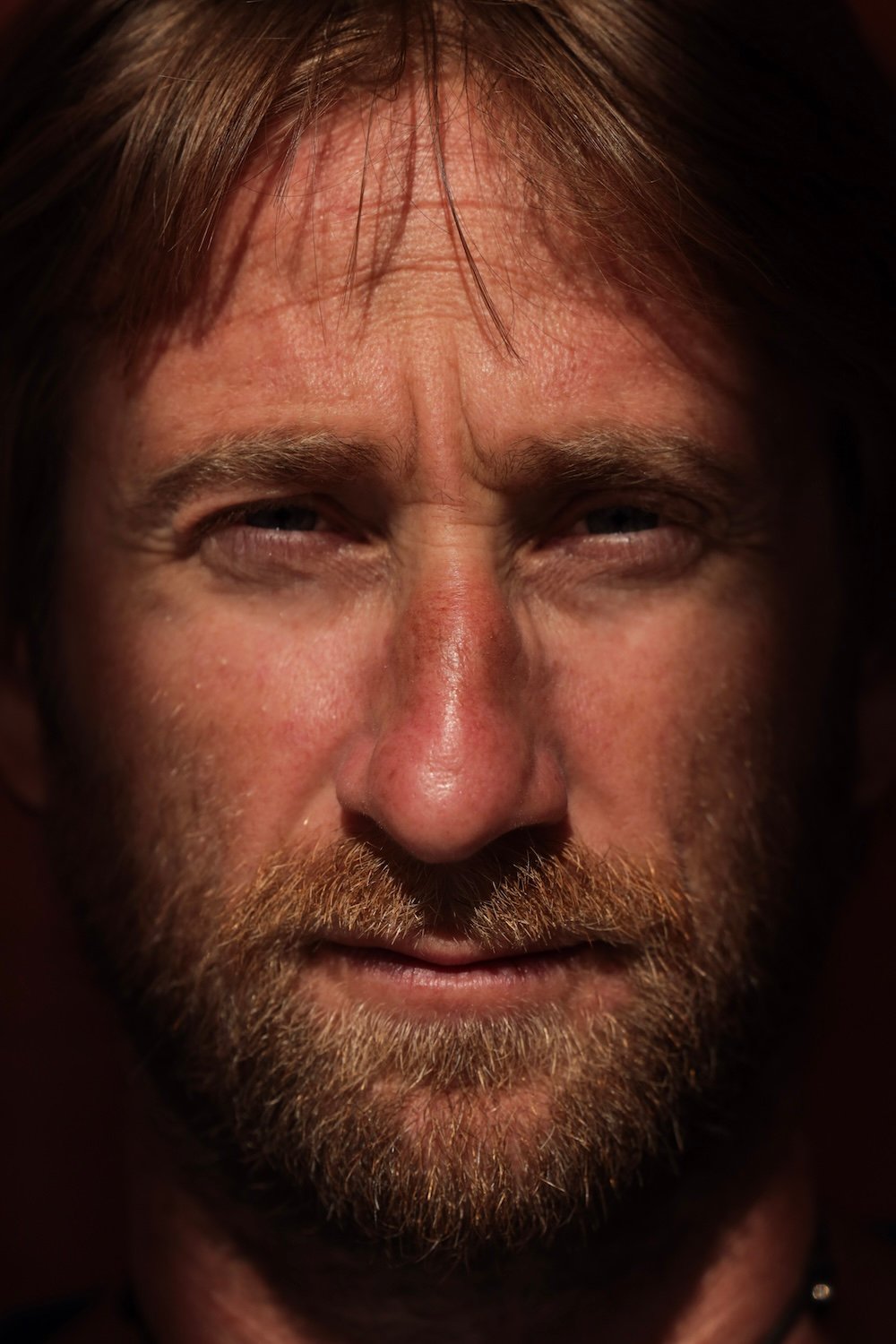
I’m not tired of this life at all, and I want to be back on tour.
Tennis Majors: What do you want for yourself?
Gilles Cervara: A few weeks of rest, then a return to the Tour—a new project where I can relive this, give a player what he needs, a project that fuels my desire to guide someone to great achievements. I want to feel that I’m made for this.
Tennis Majors: A few weeks—how many is that?
Gilles Cervara: Two months, maybe? If I’m looking to next season, that means starting pre‑season in November.
Tennis Majors: What kind of player?
Gilles Cervara: Either someone already high-level who needs a bit more energy to level up, or someone not top-level yet, but with huge potential.
Tennis Majors: Have you had interest?
Gilles Cervara: Some agents, yes. They wanted to know my state of mind—and I gave the same answer: I’m not tired of this life at all, and I want to be back on tour.
Tennis Majors: What did you learn from this adventure with Daniil—and from recent months?
Gilles Cervara: What I learned is essentially confirmation. It’s the kind of project and challenge that truly suits me. Everything—for me, both good and bad—is a way to be better, to find solutions, to learn about myself. This recent period taught me that if I’d approached the problems I saw early in a different way, I could have changed the course of things by behaving differently. The next time a similar situation arises, I’ll position myself differently.
